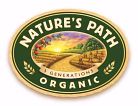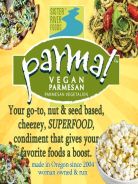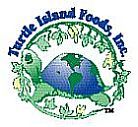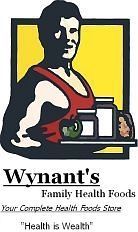The Scoop
EVEN

Non-violence
Compassion
Sustainability
All Life is
Interconnected
Eugene Veg Education Network (EVEN) - serving as a vegan resource since 2005
Veg Wisdom
Until he extends the circle of compassion to ALL living things, man will not himself find peace. - Albert Schweitzer
EVEN Featured In:
~ Vegan Voices
(Beyond Joy)
~ Health Science Magazine (Member Spotlight)
~ Boomer News Interview (NW Boomer and Senior News)
~ 24 Carrot Award (Vegetarians in Paradise)
~ Vegan Awareness Year (Mayoral Proclamation, City of Eugene)
~ American Vegan Magazine (American Vegan Society)
~ Volunteer of the Year (United Way)
Become a Member
Please visit our sponsors!
Click on their logos below.
Veg Spotlight
Shop to Support EVEN
Use AmazonSmile for your purchases and Amazon will donate to EVEN!
Veg Wisdom
Human beings are the only animals of which I am thoroughly and cravenly afraid. - George Bernard Shaw
The Milk Today
The Milk Today by Ken Viscidi
"Milk can't be bad for you. People have been consuming dairy products for thousands of years". That's an argument I often hear in defense to growing evidence that dairy products are hazardous to the consumer's health. Perhaps some logic can be found in the suggestion that age old traditions can't be bad but none of it is relevant in the case of dairy products. This is because the milk produced today is a very different substance than that of a thousand years ago or even 50 years ago. Several factors have contributed to these differences at every stage along the milk production process. So we'll start at the beginning.
It can't be verified that the breeding of cows to produce more milk has produced cows that naturally secrete more sex hormones into their milk than did the less modern breeds of dairy cows simply because the less modern breeds aren't around anymore to investigate. But we do know that cows that produce more milk generally have higher levels of sex hormones and modern cows produce more milk so it's likely they have more sex hormones than their ancestors. We do know that the sex hormones get into the milk and these hormones have detrimental effects on the consumer which we'll discuss shortly.
Speaking of sex hormones, let's talk about recombinant bovine growth hormone (rBGH). This is a genetically engineered form of the bovine growth hormone that's naturally in cows. Monsanto has developed rBGH and distributes under the brand name Prosilac to increase milk production in cows by 10 to 15%. It was approved by the FDA in November of 1993. Its approval did not come without casualties. Richard Burroughs, the FDA employee that led the review process, was not satisfied by the lack of testing that was administered and he ordered that further tests must be done before approving its use. He was soon fired. Dr. Alexander Apostolou, director of the FDA's division of Toxicology, was also pressured to leave when he expressed his concerns. So in February of 1994 Prosilac made it to the market and soon about 1/3 of dairy cattle was treated with Prosilac. Thankfully, we think that number is going down. Monsanto stopped making Prosilac's sales figures public in January '95 and milk farmers are not obligated to tell if they use it, so we can't be 100% confident that rBGH use is going down, but there is a much stronger demand for milk that's certified that rBGH has not been used.
How does rBGH affect the milk? Another sex hormone in cows treated with rBGH also increases with the use of rBGH. That hormone is Insulin Like Growth Factor-I (IGF-1) and this hormone ends up in the milk. The IGF-1 in cows is identical to that in humans and it's been shown that IGF-1 levels in humans do increase after consuming milk (1,2). The IGF-1 level in human's blood is positively associated with breast cancer, prostate cancer (3, 4), uteri cancer (5) and ovarian cancer (6,7). Cancer of these four organs, breasts, prostate, uterus and ovaries, are going to be mentioned quite a bit today. That's because these organs are all very sensitive to the levels of sex hormones in our blood and we'll find that today's milk has a considerable impact on the sex hormone levels in the blood of its consumers. And the use of rBGH is not the only factor that makes today's milk so rich in sex hormones.
We get plenty of warnings that estrogen replacement therapy promotes breast cancer. It promotes breast cancer because estrogen stimulates the mammary glands so if estrogen activity is higher than normal, cancer cells in the breast proliferate. Estrogen's carcinogenic effect is not limited to the breasts. Estrogen also increases cell division in the uterus cells. Increased cell division means increases in DNA replication which means increased DNA replication errors which means increased mutations which ultimately lead to malignant tumors in the uterus (8,9). And estrogen has been shown to have an adverse effect on the ovarian epithelium (10). Estrogen also indirectly promotes cancer to all these organs by increasing the carcinogenic effects of IGF-1.
Well, that's a lot of talk about estrogen but what does this all have to do with milk? Profits would be lost if cows were not constantly lactating. So cows are impregnated soon after their last birth and they're milked even while they're pregnant. Pregnancy tremendously boosts estrogen concentration in the cow's milk and this gets ingested by the consumer. In fact, 60-80% of dietary estrogen comes from dairy (11). Sixty to 80% of dietary estrogen comes from dairy. Actually, it turns out that the most active forms of estrogen---estrone and estradiol---have low oral bioactivity. They have trouble surviving the GI tract. But much of the estrogen in milk is in the form of estrone sulfate which is absorbed intact and is readily converted to estrone and estradiol once it's in the consumer's blood. That's probably why estrogen levels of people who consume dairy regularly are so much higher than those of people who consume little or no dairy (5).
So if A then B, and if B then C, can we then say, if A then C? Here's what I'm getting at. If we know that dairy consumption increases sex hormone activity and we know that high sex hormone activity causes cancer, can we say dairy consumption causes cancer? One report published in a 2005 issue of Medical Hypotheses correlated the incidence rates for breast, ovarian, and uteri cancers from 40 countries in 5 continents with food intake. The food items included were animal fats, meat, eggs, butter, milk, cereals, pulses, beans, soy beans, peas, fruits, vegetables, coffee, tea, and alcoholic beverages. Milk was second only to meat in its correlation to breast cancer and cheese was next. And out of all the foods evaluated, milk was the most closely correlated to the incidence of ovarian cancer. Milk and cheese ranked #1 and #2 for uteri cancer (5). A study published in a 2005 issue of the Journal of the National Cancer Institute gathered the data from the 12 publications found by searching the medical journal data base Medline for prospective studies evaluating the association of dairy products and calcium with prostate cancer found that dairy and calcium intakes were each individually and collectively associated with the risk of prostate cancer (12). Another review study published in the International Journal of Cancer in 1995 evaluated several cohort and case control studies and concluded that dairy is positively associated with ovarian cancer (13).
Let's leave the cows and move along the production line a little further. Today, milk gets homogenized to keep the fat from separating from the whey. This is a physical manipulation of the milk that breaks particles down to much smaller particles by pressing the milk through very tiny pores. In so doing, it somehow causes the fat in milk to protect some of the proteins from digestion AND it makes the proteins so small that they can be absorbed into our blood from our gut without being digested. Some of these proteins trigger our immune systems to produce antibodies to fight them off. It turns out that these proteins are very similar to the protein in our cartilage so the antibodies we produce to protect us from this unfamiliar protein in our blood attack our own joints. That's why dairy is so linked to rheumatoid arthritis.
Another protein in milk that homogenization causes to be absorbed intact is an enzyme called xanthine oxidase. As the name implies, it is a potent oxidizer and it oxidizes cholesterol in our arteries. Cholesterol oxidation is what causes plaque and subsequently atherosclerosis, arteriosclerosis and all the ailments that arise from circulatory blockages.
OK. Let's recap.
Today's milk is unnaturally high in sex hormones because of the hormones the cows are given and because the cows are milked while they are pregnant.
These sex hormones promote cancers of the uterus, ovaries, breasts and prostate of the consumer.
Also, the homogenization of milk enables some of the proteins to be absorbed without digestion. These proteins cause an immune response that deteriorates the consumer's joints and oxidizes cholesterol in the arteries which promotes plaque.
That's why bovine milk in the past is so different than the milk today.
1) J Am Diet Ass (1999) 99;1228-33.
2) Int J Cancer (2004) 110; 491-6.
3) Cancer Epidemiol Biomarkers Prev (2005) 14(1); 195-203.
4) Br J Cancer (1992) 65; 311-20.
5) Med Hypotheses (2005) 65; 1028-37.
6) Endocr Metab (1994) 78; 271-6.
7) J Clin Endocr Metab (1997) 82; 2308-13.
8) Br J Cancer (1988) 57; 205-12.
9) Ann NY Acad Sci (2001) 943; 296-315.
10) J Steroid Biochem Mol Biol (2000) 74; 357-64.
11) Food Chem (1998) 62; 7-20.
12) J Nat Cancer Inst (2005) 97(23); 1768-77.
13) Int J Cancer (2005) 118; 431-41.









